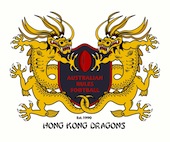A veteran of Japanese football – Takaaki Seto
- Friday, October 25 2013 @ 11:50 pm ACDT
- Contributed by: Wesley Hull
- Views: 4,244

 With the kind assistance and generosity of Jonathan Cooper and the Osaka Dingoes Australian Football club, the following article is an interview with one of the icons of Australian Rules football in Japan. The answers to the interview questions have been produced in both English and Japanese out of respect for the loyal national readership in Japan and so that the current University players can read his message and follow in his footsteps.
With the kind assistance and generosity of Jonathan Cooper and the Osaka Dingoes Australian Football club, the following article is an interview with one of the icons of Australian Rules football in Japan. The answers to the interview questions have been produced in both English and Japanese out of respect for the loyal national readership in Japan and so that the current University players can read his message and follow in his footsteps.
With the development of the game of Australian football in Asia high on the agenda of the current AFL administration, we thought we would interview and share with you the thoughts of the Dingoes' Takaaki Seto, a man who has been involved in Japanese football for twelve years now and who was influential in establishing the university football system in Japan.
'Seto' as he is more commonly referred to, is currently a back pocket at the Osaka Dingoes and has represented Japan at the 2002, 2008 and 2011 International Cups. He won the Peter Wilson medal for league best and fairest in 2007, and won the Osaka Dingoes' best and fairest award in 2012.
 The AFL Japan Cup 2013 is set to be held on October 5, Saturday at "Seimei No Mori Resort" in Chiba, Japan.
The AFL Japan Cup 2013 is set to be held on October 5, Saturday at "Seimei No Mori Resort" in Chiba, Japan.
 Further to Shane Hendrickson's
Further to Shane Hendrickson's 

 RSS news
RSS news Twitter
Twitter Facebook
Facebook